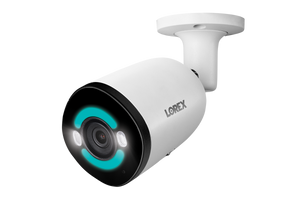IP Security For Home
Understanding Home IP Security: Safeguarding Your Digital Life
In today's increasingly connected world, home IP security has become essential for protecting your privacy and personal information. With the prevalence of smart devices and the Internet of Things (IoT), ensuring robust security measures is critical for homeowners and renters alike. In this article, we will explore various aspects of home IP security, including best practices, tools, and technologies you can adopt for a safer digital environment.
What is Home IP Security?
Home IP security refers to the measures taken to protect your home network from unauthorized access and cyber threats. This encompasses securing your routers, smart devices, and any endpoints connected to your network. By implementing effective IP security strategies, you can safeguard your sensitive information from potential breaches.
The Importance of Home Network Security
With more devices becoming connected to the internet, the risks associated with an unsecured network have multiplied. Cybercriminals can exploit vulnerabilities for malicious purposes, including identity theft, data breaches, and even financial fraud. Therefore, enhancing your home network security should be a top priority.
Essential Tips for Enhancing Home IP Security
1. Change Default Credentials
Many devices come with default usernames and passwords, making them easy targets for cyber attackers. To enhance your home IP security, change these credentials immediately after setting up any device.
2. Enable WPA3 Encryption
Utilizing the latest Wi-Fi encryption standard, WPA3, can significantly enhance your network's security. Ensure that your router supports WPA3 and enable it to protect your wireless communications from eavesdropping.
3. Regularly Update Firmware and Software
Keeping your router's firmware and all connected devices updated is crucial. Manufacturers often release updates that fix vulnerabilities. Regularly check for updates to stay protected against the latest threats.
4. Use a Strong and Unique Password
Create a strong, unique password for your Wi-Fi network and your devices. Consider using a password manager to generate and store complex passwords that are difficult for others to guess.
Tools and Technologies for Home IP Security
1. Firewall Protection
Invest in a reliable firewall, either hardware or software-based, to create a barrier against unauthorized access. Firewalls are essential for monitoring incoming and outgoing traffic on your network.
2. Virtual Private Network (VPN)
A VPN encrypts your internet connection and masks your IP address, adding an additional layer of privacy and security while browsing. It's especially useful when using public Wi-Fi networks.
3. Network Monitoring Tools
Utilize network monitoring tools to keep an eye on the devices connected to your network. These tools can alert you to any suspicious activity and help you manage your network more effectively.
Conclusion
Home IP security is not a one-time task but an ongoing commitment to protecting your digital life. By following the tips outlined in this article and utilizing the right tools, you can significantly improve the security of your home network. Stay vigilant, keep your systems updated, and always prioritize security to keep your personal information safe in an increasingly connected world.























